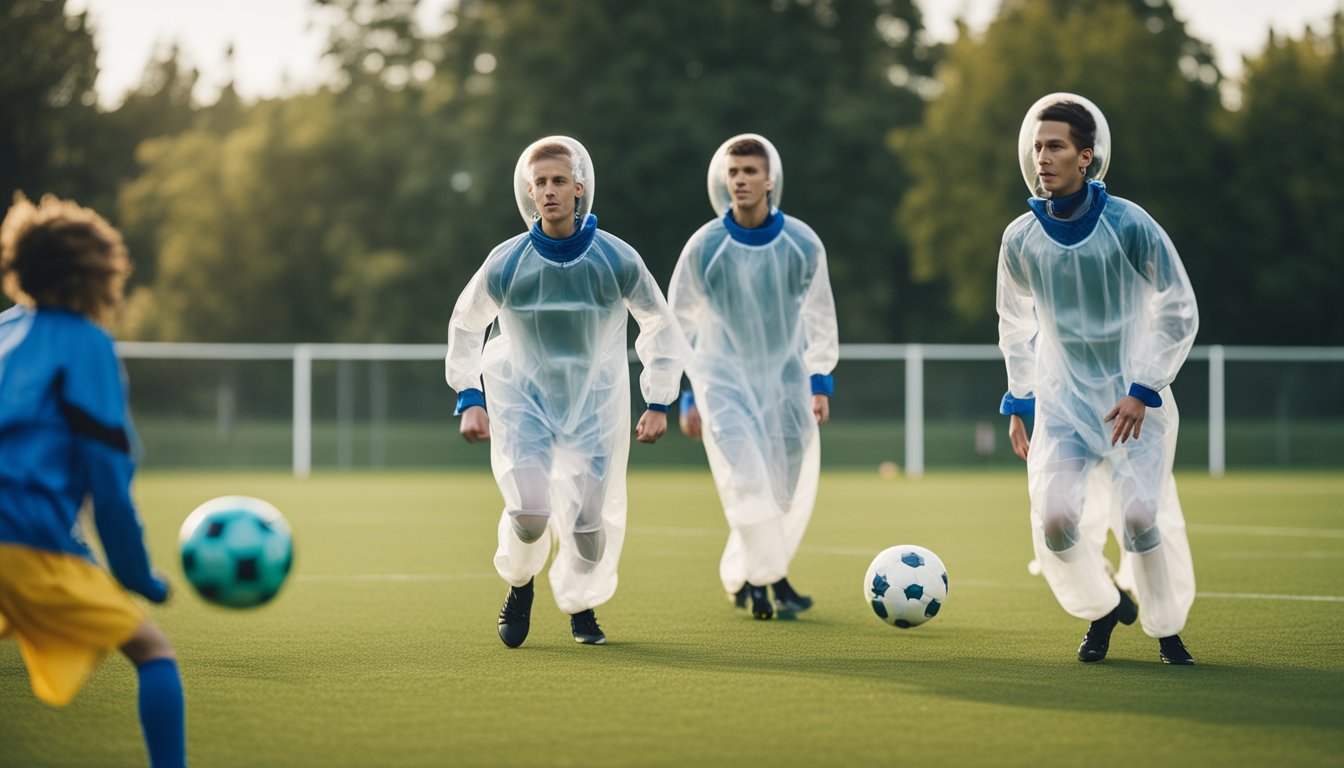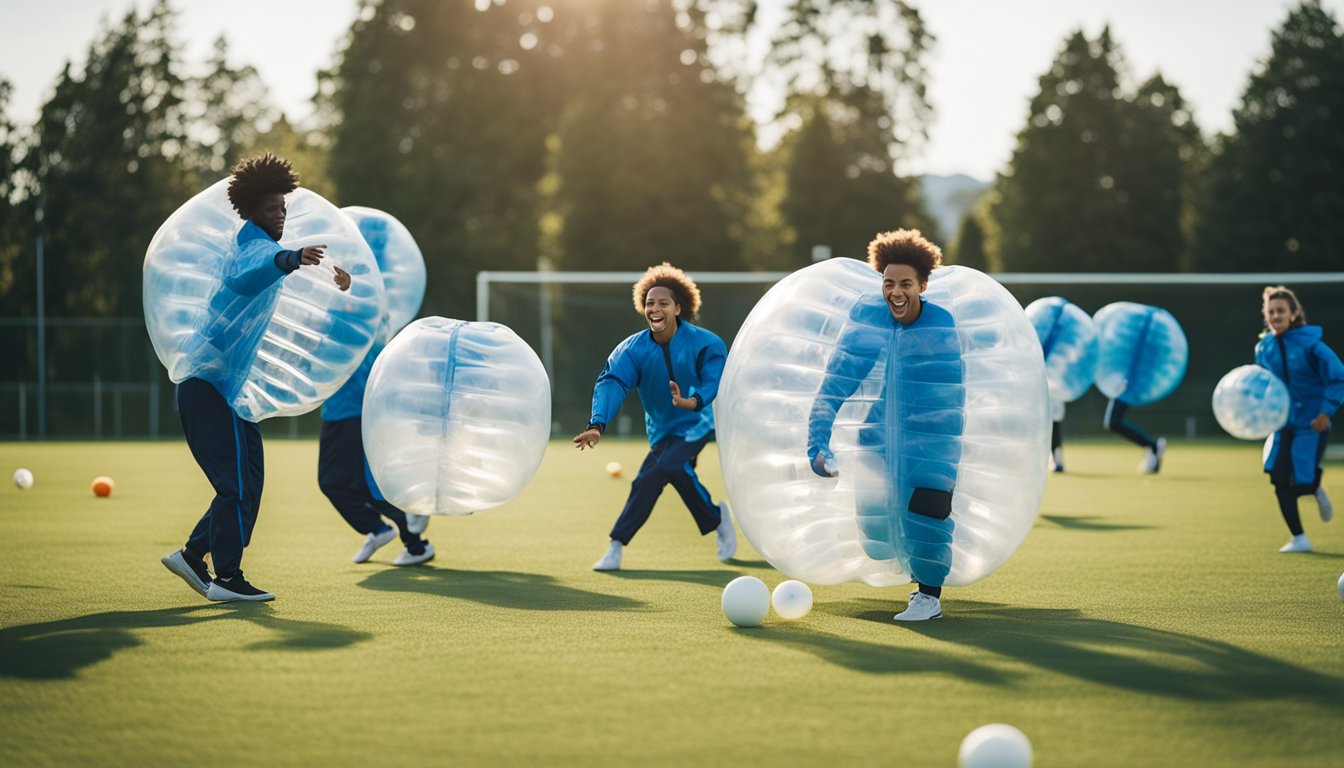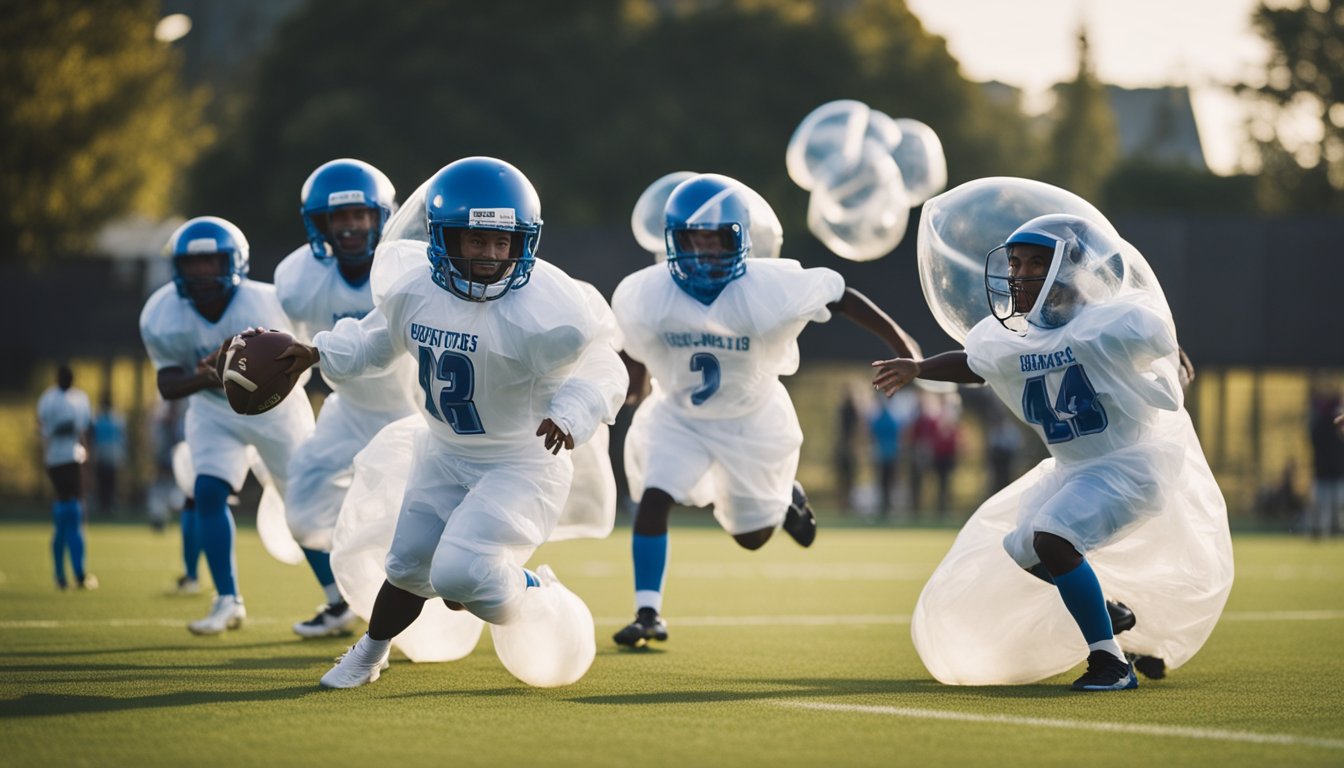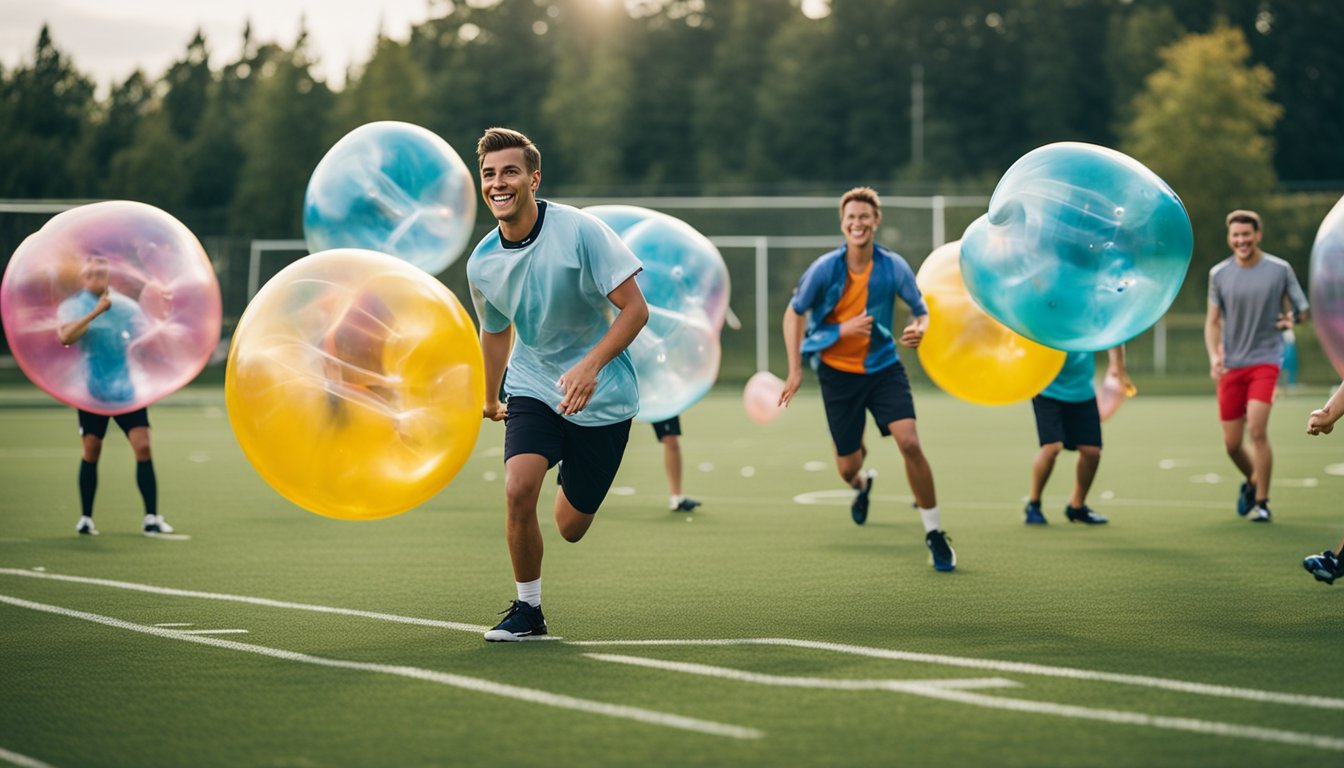Late updated: 02 Jan 2025 09:01
Written by: Emma Saunders
Incorporating Bubble Football Into School Sports Programmes: A Fresh Approach to Student Engagement
Bubble football offers a fresh take on traditional sports in schools, combining elements of physical education with fun and laughter. This innovative sport involves players wearing inflatable suits, making the experience both safe and entertaining. Introducing bubble football into school sports programmes can enhance teamwork and inclusivity, offering students a unique and enjoyable form of physical activity.

Incorporating bubble football into the curriculum provides students with the chance to engage in a non-conventional sport that promotes holistic development. The blend of laughter, physical exertion, and teamwork helps students develop problem-solving skills and resilience. We believe that these activities foster a sense of camaraderie and cooperation among students.
For those organising school events, bubble football can be an exciting addition to any sports programme. It requires minimal setup and can be played both indoors and outdoors, providing versatility for different school environments. As educators, we recognise the importance of keeping students active and engaged, and bubble football presents an ideal opportunity to achieve this.
Key Takeaways
- Bubble football enhances teamwork and inclusivity.
- It encourages holistic development through fun activities.
- Versatile setup suitable for different school environments.
Integrating Bubble Football Into the Curriculum

Incorporating bubble football into school programmes highlights the importance of fostering physical health and enhancing students' communication skills. This innovative sport offers an inclusive approach to physical education and encourages student engagement through enjoyable and dynamic activities.
Adapting Physical Education Programmes
Facilitating the integration of bubble football into school programmes requires adaptations to existing physical education (PE) curricula. Embracing this activity within our lessons can offer students an alternative to traditional sports, thereby enhancing participation in sport and engagement.
Sports facilities need adjustments to safely accommodate inflatable Zorb suits. Additionally, schools should assess the age suitability for engaging students at different levels. By aligning bubble football with existing athletic programmes, we promote both physical health and academic outcomes. As part of a holistic development approach, bubble football combines fun with fitness, making it a valuable component of the wider vzdělávací program.
Promoting Teamwork and Communication
Bubble football inherently promotes teamwork and communication among students. Within this dynamic environment, pupils must collaborate to navigate the challenges posed by the inflatable suits while working towards common goals. These interactions naturally build camaraderie and encourage effective communication strategies.
By focusing on these skills, we prepare students for real-life situations, consequently enriching their educational experiences. As students communicate strategies and roles during game play, they cultivate inclusivity in the sporting context. Through this, students can develop essential life skills, which reflect positively on their personal growth and future prospects in various fields.
Organising and Conducting Bubble Football Sessions

Incorporating bubble football into school sports programmes requires careful planning to ensure both fun and safety. Our focus will be on implementing effective safety protocols and understanding the rules and team setup for smooth gameplay.
Safety Protocols and Equipment
Safety is paramount when conducting bubble football sessions for students. We must ensure all participants wear sturdy zorb suits, which are designed to protect players during falls or collisions.
The sports facility should be equipped with soft surfaces, like grass or indoor flooring, to minimise injury risks. Trained staff must supervise each session and provide clear instructions on using equipment safely.
Before the game starts, a safety briefing helps prevent accidents. Emphasise the importance of staying on one’s feet, avoiding reckless behaviour, and respecting the physical limits of fellow players. Regular equipment checks are also crucial to ensure the integrity of zorb suits and other gear.
Rules, Team Setup and Gameplay
Organising bubble football sessions involves clearly defined rules to make the game enjoyable and to ensure student engagement. Each team generally consists of five to seven players, similar to other high school sports like dodge ball, to maintain a manageable size.
The objective is to score goals, blending elements from traditional football and zorb football into one thrilling experience. We need to adapt gameplay to focus on inclusivity, encouraging participation from students with varying athletic abilities.
Equipping students with knowledge about the basic rules—such as the prohibition on aggressive pushing—avoids misunderstandings and helps create a fun and fair environment. Incorporating elements like periodic time-outs for rest allows students to regroup and strategise, enhancing camaraderie and participation in sport.
Frequently Asked Questions

Introducing bubble football into school sports programmes offers a unique combination of physical activity, strategy development, and fun. It also addresses student safety, age suitability, and curriculum integration.
How can we ensure the safety of students while playing bubble football?
Student safety is paramount. The large Zorb bubbles used in bubble football absorb impacts, reducing the risk of injury. Proper supervision and ensuring students wear appropriate clothing, such as comfortable, loose-fitting exercise attire and trainers, further enhance safety.
What are the benefits of including bubble football in the school sports curriculum?
Bubble football provides students with a fun and competitive environment that promotes physical fitness. Involvement in this activity can improve teamwork skills, increase cardiovascular health, and boost students' enthusiasm for participating in school sports.
Which age groups are most suited for participating in bubble football at school?
Bubble football is suitable for a variety of age groups. Typically, it is best enjoyed by students aged 10 and above, as they can better handle the physical demands and strategy involved in the game. Age adjustments might be necessary to align with safety and developmental considerations.
What are the rules and regulations of bubble football for school leagues?
The basic rules of bubble football include players being encased in bubbles, with the objective to score goals against the opposing team. Schools can establish additional regulations, such as match durations and team sizes, to accommodate their specific needs and ensure fair play.
How much space is required to accommodate a bubble football match within school grounds?
A standard football pitch can serve as ample space, but smaller matches can comfortably fit in half the size of a regulation pitch. Schools should ensure the playing surface is flat and safe to prevent injuries, making it vital to assess the available space before organising matches.
Can bubble football be incorporated into the school's physical education syllabus?
Incorporating bubble football into the physical education syllabus is feasible and can offer a modern twist to traditional sports programmes. It encourages physical fitness, teaches strategic planning, and provides students with a novel activity that enhances their overall learning experience in sports education.
